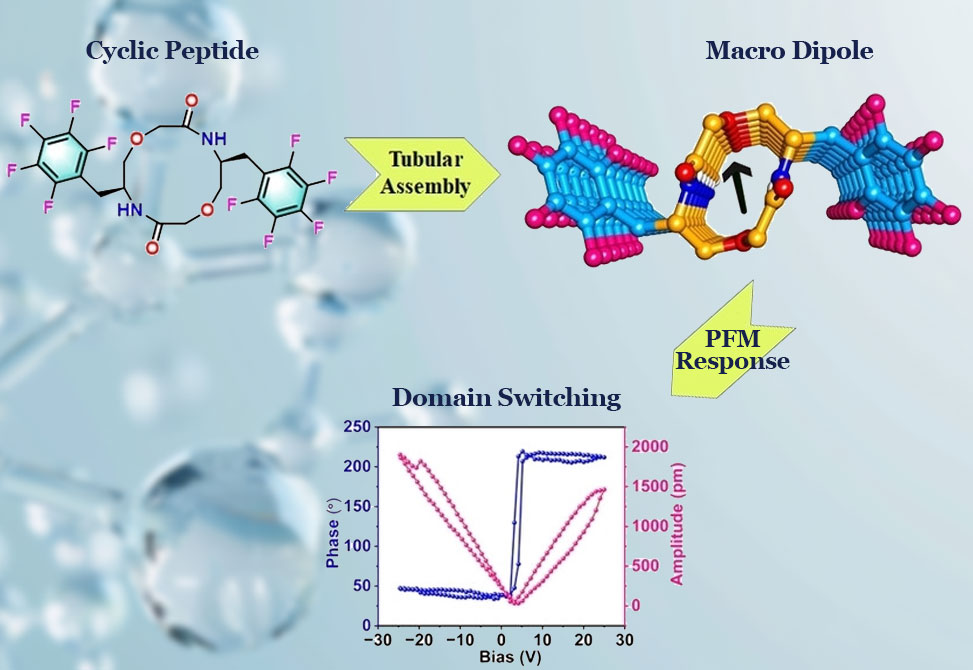Macroscopic Dipoles
Reflecting work in the Gopi Lab
Crystalline materials exhibiting non-centrosymmetry and possessing substantial surface dipole moments play a critical role in piezoelectricity. Designing biocompatible self-assembled materials with these attributes is particularly challenging when compared to inorganic materials and ceramics.
In a study published in Angewandte Chemie, Intl. Ed., members in the Gopi Lab at the Indian Institute of Science Education and Research, elucidate the crystal conformations of novel cyclic peptides that exhibit self-assembly into tubular structures characterized by unidirectional hydrogen bonding and piezoelectric properties. Unlike cyclic peptides derived from alternating L- and D-amino acids, those derived from new δ-amino acids demonstrate the formation of self-assembled tubes with unidirectional hydrogen bonds. Further, the tightly packed tubular assemblies and higher macrodipole moments result in superior piezoelectric coefficients compared to peptides with lower macrodipole moments.
The findings from the Gopi Lab underscore the potential for designing cyclic peptides with unidirectional hydrogen bonds, thereby paving the way for their application in design of biocompatible piezo- and ferroelectric materials.


